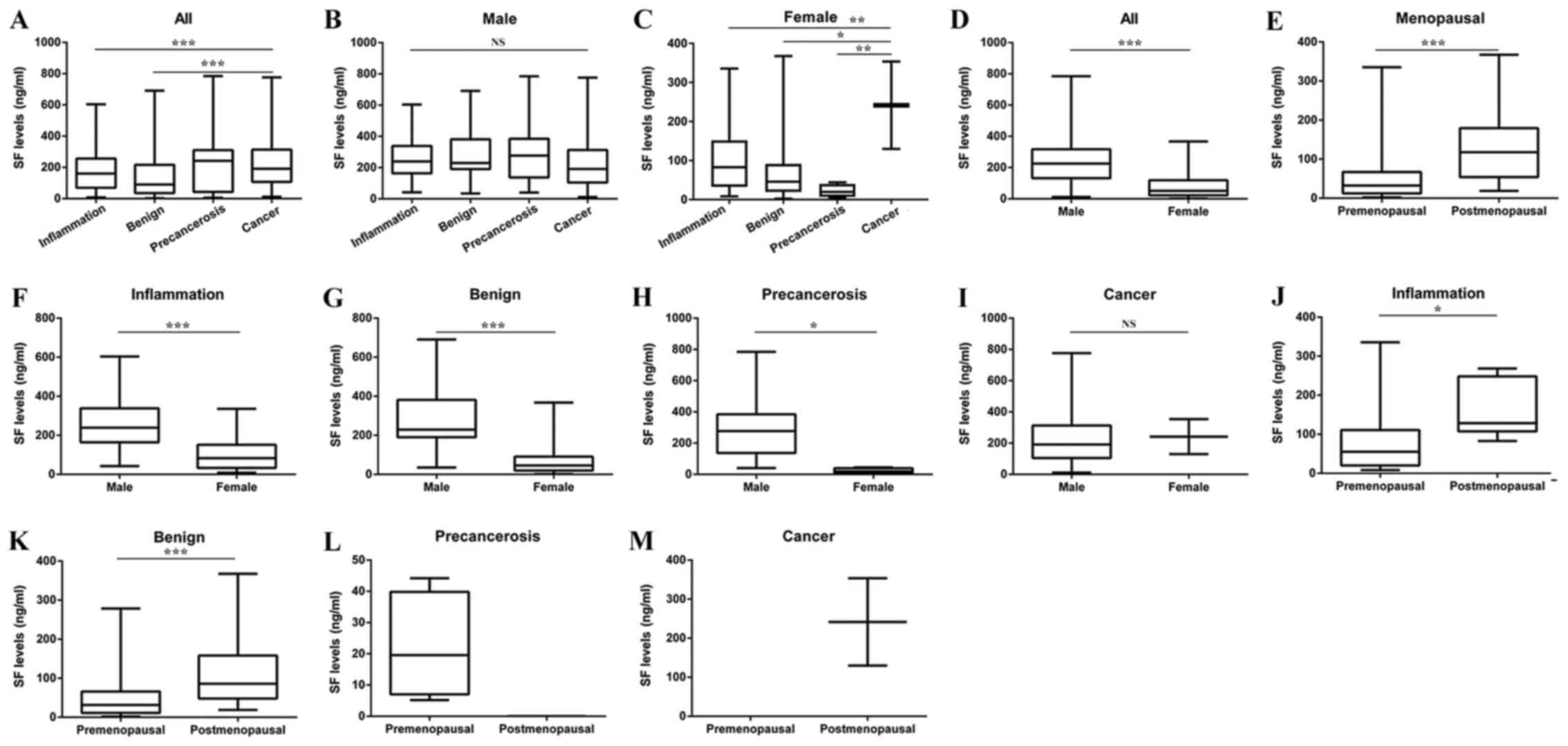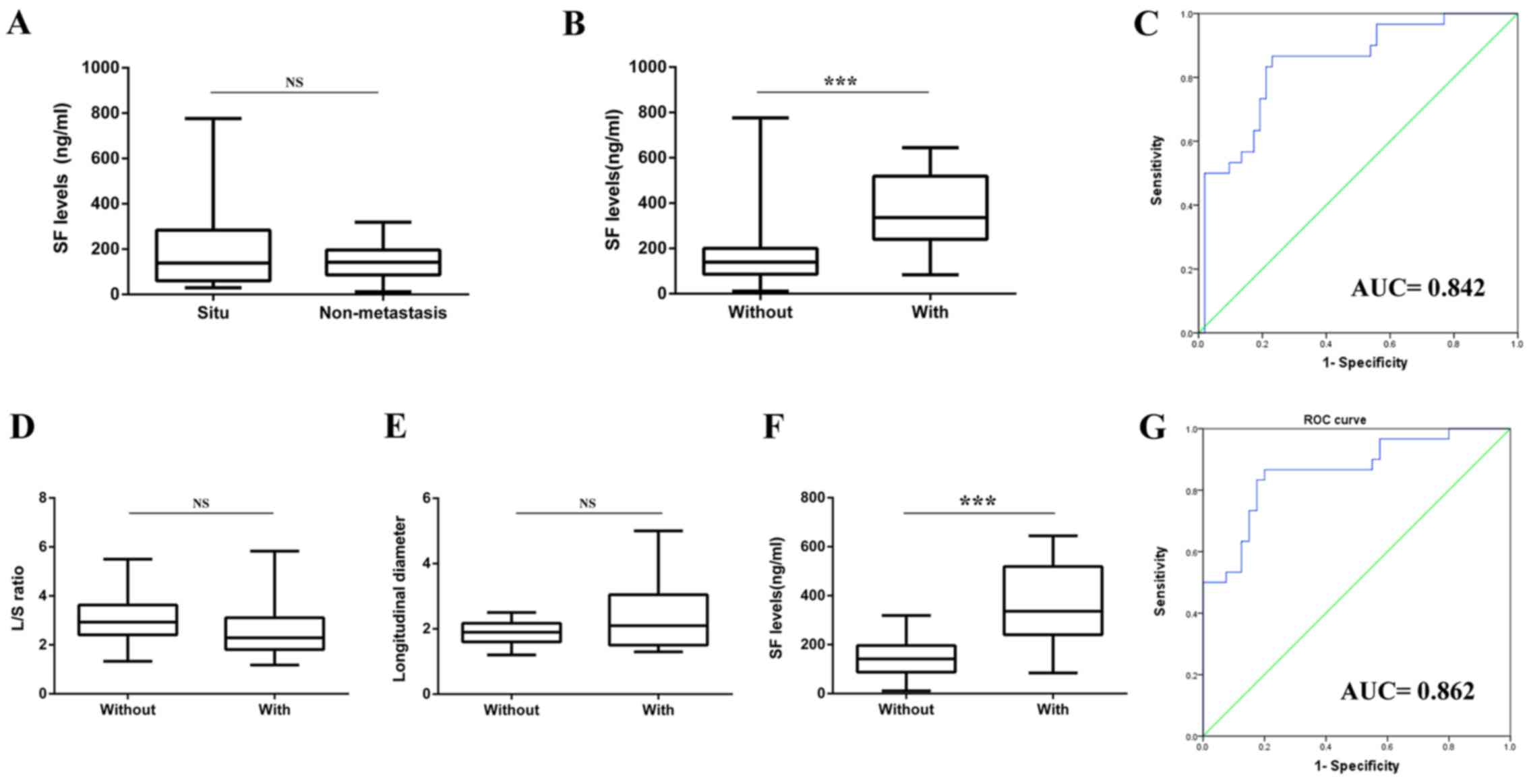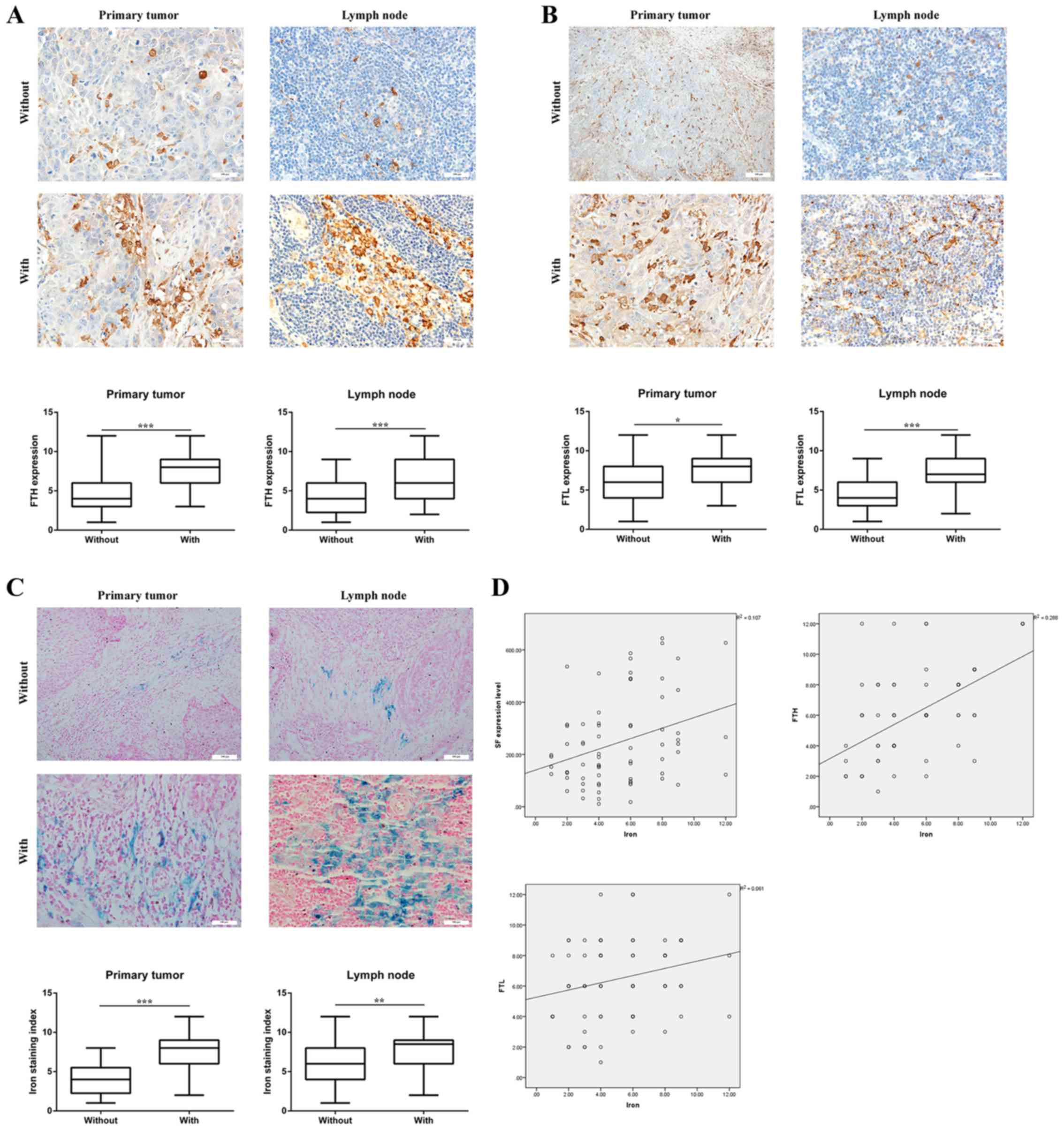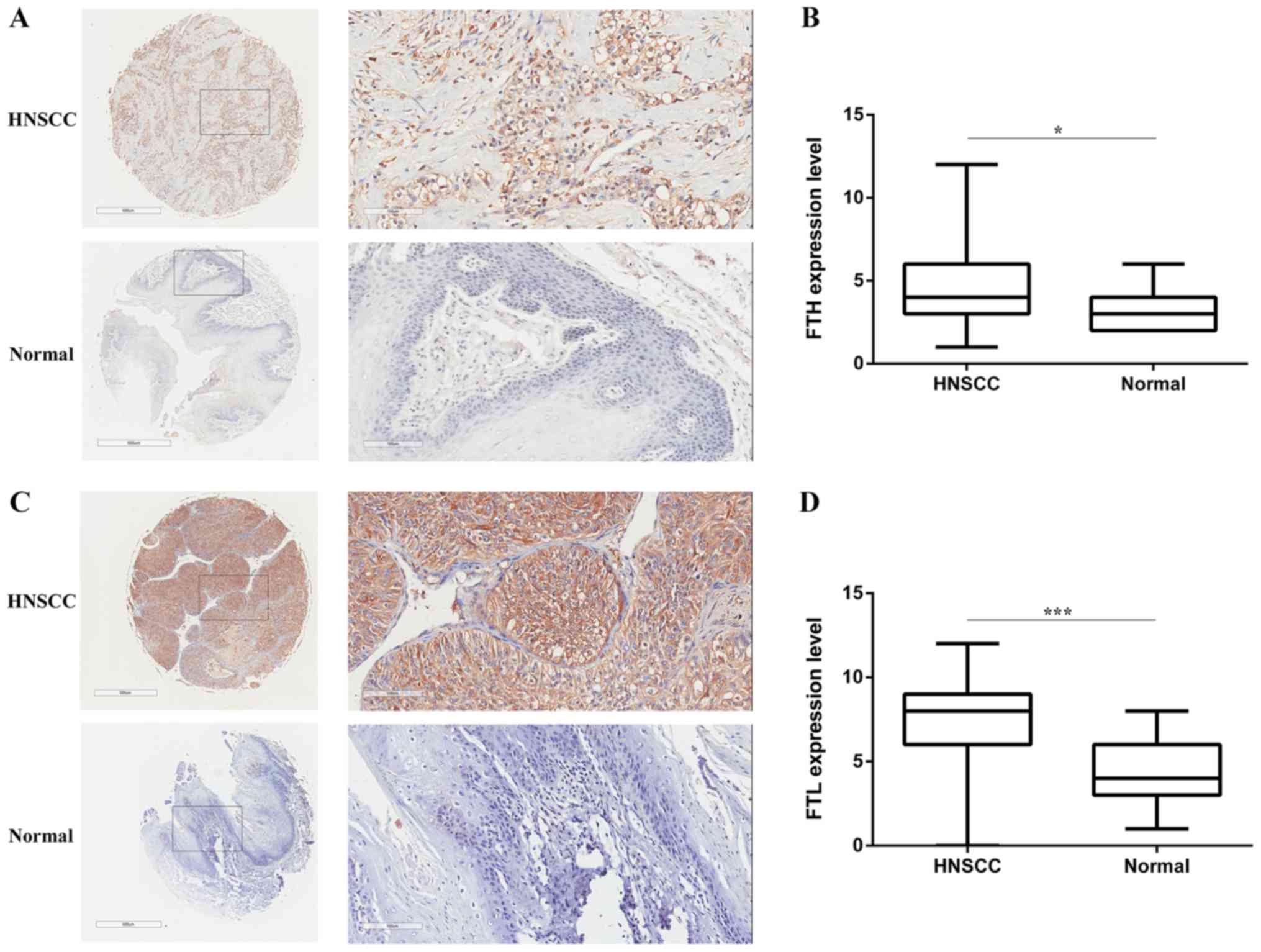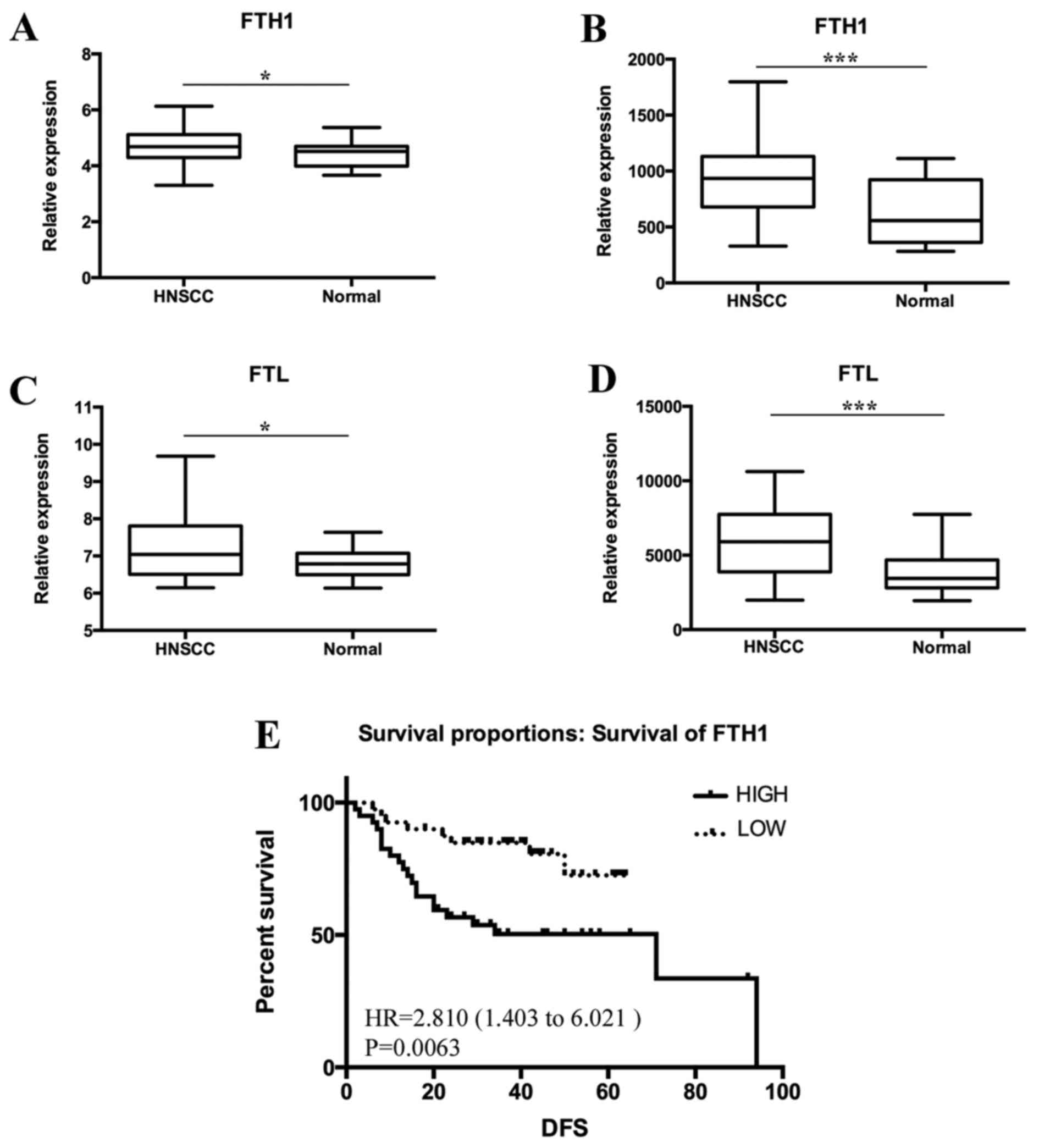|
1
|
Busch C, Becker B, Kriegs M, Gatzemeier F,
Krüger K, Möckelmann N, Fritz G, Petersen C, Knecht R, Rothkamm K,
et al: Similar cisplatin sensitivity of HPV-positive and -negative
HNSCC cell lines. Oncotarget. 7:35832–35842. 2016. View Article : Google Scholar : PubMed/NCBI
|
|
2
|
Suarez C, Rodrigo JP, Robbins KT, Paleri
V, Silver CE, Rinaldo A, Medina JE, Hamoir M, Sanabria A, Mondin V,
et al: Superselective neck dissection: Rationale, indications, and
results. Eur Arch Oto-Rhino-L. 270:2815–2821. 2013. View Article : Google Scholar
|
|
3
|
Vigneswaran N and Williams MD:
Epidemiologic trends in head and neck cancer and aids in diagnosis.
Oral Maxillofac Surg Clin North Am. 26:123–141. 2014. View Article : Google Scholar : PubMed/NCBI
|
|
4
|
Argiris A, Karamouzis MV, Raben D and
Ferris RL: Head and neck cancer. Lancet. 371:1695–1709. 2008.
View Article : Google Scholar : PubMed/NCBI
|
|
5
|
Trivedi S, Mattos J, Gooding W, Godfrey TE
and Ferris RL: Correlation of tumor marker expression with nodal
disease burden in metastatic head and neck cancer. Otolaryngol Head
Neck Surg. 149:261–268. 2013. View Article : Google Scholar : PubMed/NCBI
|
|
6
|
SV T and FM T: Iron and cancer: More ore
to be mined. Nat Rev Cancer. 13:342–355. 2013. View Article : Google Scholar : PubMed/NCBI
|
|
7
|
Lenarduzzi M, Hui AB, Yue S, Ito E, Shi W,
Williams J, Bruce J, Sakemura-Nakatsugawa N, Xu W, Schimmer A, et
al: Hemochromatosis enhances tumor progression via upregulation of
intracellular iron in head and neck cancer. PLoS One. 8:e740752013.
View Article : Google Scholar : PubMed/NCBI
|
|
8
|
Ahn SH, Lee S, Kim H, Lee SH, Kim BJ and
Koh JM: Higher serum ferritin level and lower femur neck strength
in women at the stage of bone loss (≥45 years of age): The fourth
Korea national health and nutrition examination survey (Knhanes
IV). Endocr Res. 41:334–342. 2016. View Article : Google Scholar : PubMed/NCBI
|
|
9
|
Shi HB, Li XD, Jiang JT, Zhao WQ, Ji M and
Wu CP: Serum ferritin is elevated in advanced non-small cell lung
cancer patients and is associated with efficacy of platinum-based
chemotherapy. J Cancer Res Ther. 10:681–685. 2014.PubMed/NCBI
|
|
10
|
Zhao Y, Wang M, Cui C, Zhang L, Liao F, Li
H and Wu X: Significance of combined tests of serum golgi
glycoprotein 73 and other biomarkers in diagnosis of small primary
hepatocellular carcinoma. Cancer Biomark. 15:677–683. 2015.
View Article : Google Scholar : PubMed/NCBI
|
|
11
|
Arenas-Salinas M, Townsend PD, Brito C,
Marquez V, Marabolli V, Gonzalez-Nilo F, Matias C, Watt RK,
López-Castro JD, Domínguez-Vera J, et al: The crystal structure of
ferritin from chlorobium tepidum reveals a new conformation of the
4-fold channel for this protein family. Biochimie. 106:39–47. 2014.
View Article : Google Scholar : PubMed/NCBI
|
|
12
|
Memon S, Gao RC, Jiang RZ, Si WN and Zhang
XH: Deciphering the evolution of ferritin gene family in various
living organisms. Pak J Agr Sci. 52:1055–1063. 2015.
|
|
13
|
Timoshnikov VA, Kobzeva TV, Polyakov NE
and Kontoghiorghes GJ: Inhibition of Fe(2+)- and Fe(3+)-induced
hydroxyl radical production by the iron-chelating drug deferiprone.
Free Radic Biol Med. 78:118–122. 2015. View Article : Google Scholar : PubMed/NCBI
|
|
14
|
Ma X, Wang x, Gao X, Wang L, Lu Y, Gao P,
Deng W, Yu P, Ma J, Guo J, et al: Identification of five human
novel genes associated with cell proliferation by cell-based
screening from an expressed cDNA ORF library. Life Sci.
81:1141–1151. 2007. View Article : Google Scholar : PubMed/NCBI
|
|
15
|
Han LL, Wang YX, Li J, Zhang XL, Bian C,
Wang H, Du S and Suo LN: Gender differences in associations of
serum ferritin and diabetes, metabolic syndrome, and obesity in the
China health and nutrition survey. Mol Nutr Food Res. 58:2189–2195.
2014. View Article : Google Scholar : PubMed/NCBI
|
|
16
|
Kato I, Dnistrian AM, Schwartz M, Toniolo
P, Koenig K, Shore RE, Zeleniuch-Jacquotte A, Akhmedkhanov A and
Riboli E: Risk of iron overload among middle-aged women. Int J
Vitam Nutr Res. 70:119–125. 2000. View Article : Google Scholar : PubMed/NCBI
|
|
17
|
Rychtarcikova Z, Lettlova S, Tomkova V,
Korenkova V, Langerova L, Simonova E, Zjablovskaja P,
Alberich-Jorda M, Neuzil J and Truksa J: Tumor-initiating cells of
breast and prostate origin show alterations in the expression of
genes related to iron metabolism. Oncotarget. 8:6376–6398. 2017.
View Article : Google Scholar : PubMed/NCBI
|
|
18
|
Pizzamiglio S, Bortoli MD, Taverna E,
Signore M, Veneroni S, Cho WC, Orlandi R, Verderio P and Bongarzone
I: Expression of iron-related proteins differentiate non-cancerous
and dancerous breast tumors. Int J Mol Sci. 18:E4102017. View Article : Google Scholar : PubMed/NCBI
|
|
19
|
Wang X, Peng A, Zeng J, Liu X, Wang B,
Fang X, Wang F, Ren G and Min J: Serum ferritin in combination with
prostate-specific antigen improves predictive accuracy for prostate
cancer. Oncotarget. 8:17862–17872. 2017.PubMed/NCBI
|
|
20
|
Daher R, Manceau H and Karim Z: Iron
metabolism and the role of the iron-regulating hormone hepcidin in
health and disease. Presse Med. 46:E272–E278. 2017. View Article : Google Scholar : PubMed/NCBI
|
|
21
|
Jablonska E, Socha K, Reszka E, Wieczorek
E, Skokowski J, Kalinowski L, Fendler W, Seroczynska B, Wozniak M,
Borawska MH, et al: Cadmium, arsenic, selenium and
iron-Implications for tumor progression in breast cancer. Environ
Toxicol Pharmacol. 53:151–157. 2017. View Article : Google Scholar : PubMed/NCBI
|
|
22
|
Jeong SM, Hwang S and Seong RH:
Transferrin receptor regulates pancreatic cancer growth by
modulating mitochondrial respiration and ROS generation. Biochem
Biophys Res Commun. 471:373–379. 2016. View Article : Google Scholar : PubMed/NCBI
|
|
23
|
Jeong SM, Lee J, Finley LW, Schmidt PJ,
Fleming MD and Haigis MC: SIRT3 regulates cellular iron metabolism
and cancer growth by repressing iron regulatory protein 1.
Oncogene. 34:2115–2124. 2015. View Article : Google Scholar : PubMed/NCBI
|
|
24
|
Guo W, Zhang S, Chen Y, Zhang D, Yuan L,
Cong H and Liu S: An important role of the hepcidin-ferroportin
signaling in affecting tumor growth and metastasis. Acta Bioch
Bioph Sin (Shanghai). 47:703–715. 2015. View Article : Google Scholar
|
|
25
|
Chen Y, Zhang Z, Yang K, Du J, Xu Y and
Liu S: Myeloid zinc-finger 1 (MZF-1) suppresses prostate tumor
growth through enforcing ferroportin-conducted iron egress.
Oncogene. 34:3839–3847. 2015. View Article : Google Scholar : PubMed/NCBI
|
|
26
|
Kell DB and Pretorius E: Serum ferritin is
an important inflammatory disease marker, as it is mainly a leakage
product from damaged cells. Metallomics. 6:748–773. 2014.
View Article : Google Scholar : PubMed/NCBI
|
|
27
|
Gartner A, Berger J, Bour A, El Ati J,
Traissac P, Landais E, El Kabbaj S and Delpeuch F: Assessment of
iron deficiency in the context of the obesity epidemic: Importance
of correcting serum ferritin concentrations for inflammation. Am J
Clin Nutr. 98:821–826. 2013. View Article : Google Scholar : PubMed/NCBI
|
|
28
|
Coffman LG, Parsonage D, D'Agostino R,
Torti FM and Torti SV: Regulatory effects of ferritin on
angiogenesis. Proc Natl Acad Sci USA. 106:570–575. 2009. View Article : Google Scholar : PubMed/NCBI
|
|
29
|
Liu NQ, De Marchi T, Timmermans AM,
Beekhof R, Trapman-Jansen AM, Foekens R, Look MP, van Deurzen CH,
Span PN, Sweep FC, et al: Ferritin heavy chain in triple negative
breast cancer: A favorable prognostic marker that relates to a
cluster of differentiation 8 positive (CD8+) effector
T-cell response. Mol Cell Proteomics. 13:1814–1827. 2014.
View Article : Google Scholar : PubMed/NCBI
|
|
30
|
Rosager AM, Sorensen MD, Dahlrot RH,
Hansen S, Schonberg DL, Rich JN, Lathia JD and Kristensen BW:
Transferrin receptor-1 and ferritin heavy and light chains in
astrocytic brain tumors: Expression and prognostic value. PloS One.
12:e01829542017. View Article : Google Scholar : PubMed/NCBI
|
|
31
|
Zhukova OS, Smirnova ZS, Chikileva IO and
Kiselevskii MV: Antiproliferative activity of a new nitrosyl iron
complex with cysteamine in human tumor cells in vitro. Bull Exp
Biol Med. 162:583–588. 2017. View Article : Google Scholar : PubMed/NCBI
|
|
32
|
Mahajan UM, Teller S, Sendler M, Palankar
R, van den Brandt C, Schwaiger T, Kühn JP, Ribback S, Glöckl G,
Evert M, et al: Tumour-specific delivery of siRNA-coupled
superparamagnetic iron oxide nanoparticles, targeted against PLK1,
stops progression of pancreatic cancer. Gut. 65:1838–1849. 2016.
View Article : Google Scholar : PubMed/NCBI
|
|
33
|
Kir D, Saluja M, Modi S, Venkatachalam A,
Schnettler E, Roy S and Ramakrishnan S: Cell-permeable iron
inhibits vascular endothelial growth factor receptor-2 signaling
and tumor angiogenesis. Oncotarget. 7:65348–65363. 2016. View Article : Google Scholar : PubMed/NCBI
|
|
34
|
Zanganeh S, Hutter G, Spitler R, Lenkov O,
Mahmoudi M, Shaw A, Pajarinen JS, Nejadnik H, Goodman S, Moseley M,
et al: Iron oxide nanoparticles inhibit tumour growth by inducing
pro-inflammatory macrophage polarization in tumour tissues. Nat
Nanotechnol. 11:986–994. 2016. View Article : Google Scholar : PubMed/NCBI
|
|
35
|
Heusch P, Sproll C, Buchbender C, Rieser
E, Terjung J, Antke C, Boeck I, Macht S, Scherer A, Antoch G, et
al: Diagnostic accuracy of ultrasound, 18F-FDG-PET/CT,
and fused 18F-FDG-PET-MR images with DWI for the
detection of cervical lymph node metastases of HNSCC. Clin Oral
Investig. 18:969–978. 2014. View Article : Google Scholar : PubMed/NCBI
|















